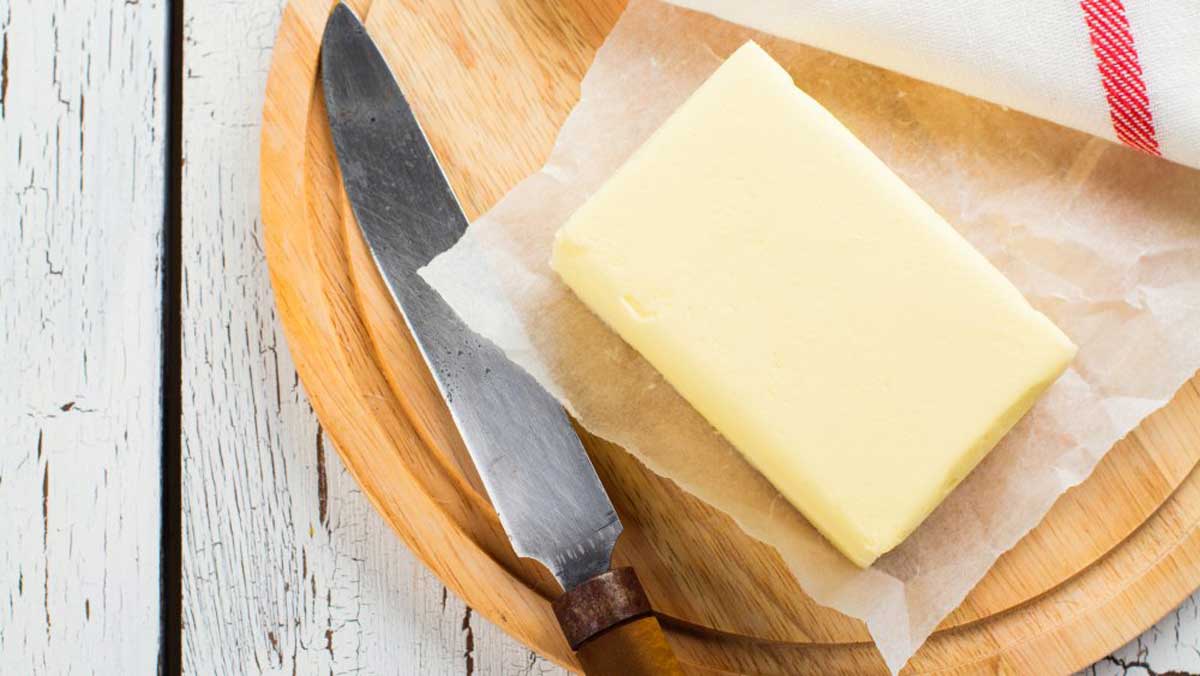Should you bake using salted or unsalted butter? Does choosing one over the other matter? Usually, people in the baking community go for unsalted butter when baking cakes because it offers them more control over their product’s sodium content. One slip up using salted butter, and things may get too salty for your taste, possibly ruining the finished product.
Despite this go-to explanation, Bread and Buzz still isn’t convinced the answer is that simple. After all, you might only have salted butter in your fridge and think it’s just too much trouble to run to the grocery store for a stick of unsalted butter. As luck would have it, you don’t have to do that because you can use salted butter for baking pretty much anything.
Why Do You Use Salt When Baking Sweets?
A few of you might be thinking: Why is salt used for baking sweets in the first place? The fact of the matter is, even our favorite sweets have some amount of sodium in them. Salt is part of the reason these treats taste as delicious as they do. It’s that tiny bit of contrast that adds depth to the flavor and takes the finished product to the level it needs to be in order to impress. Even if you make your own chocolate, you will still need a pinch of salt for the recipe!
When To Use Salted Butter
As mentioned, the majority go for unsalted butter to get a bit more leeway with the salt ratio. However, you will find that using salted butter in cake batters, even when the recipe calls for an additional amount of salt, is perfectly fine.
For as long as the recipe doesn’t ask you to add a chock full of butter, then using unsalted or salted shouldn’t make or break the finished product. In the context of “everything in moderation,” you should go with your baker’s instinct and pick what you feel is best. Of course, if you’re on a diet that is low on sodium, do not go for salted butter.

When To NOT Substitute One for the Other
The answer to that is really up to you. Like the above example, if it is for health reasons, it would be in your best interest to go for the “healthier” option. Also, if you are a purist, you might not even consider yourself to have a choice in the matter.
Generally speaking, it is perfectly fine to switch between these two products. Most of the time, it will not affect the taste in a way that will make you regret tweaking the recipe. That said, when you do opt for salted butter in a recipe that originally called for unsalted butter, make sure to take note of the sodium content and adjust accordingly.
The same should apply if it’s the other way around, as lack of salt can affect the result almost as badly as too much salt. In the end, for as long as you stay aware of what the recipe is calling for, there isn’t an occasion where you can’t swap these two.
Butter Storage
Store-bought salted and unsalted butter can last up to three months when stored in the fridge. Plus, salt being a preservative means salted butter can last even longer. Take note that this will have no bearing on the product’s freshness, though.
Sure, salted butter can remain edible for longer than three months, but will it retain its ideal taste? That will usually depend on other factors. As far as freshness is concerned, you will almost always be able to tell what the case is with unsalted butter.
How Do You Store Butter Long-Term?
If you plan on storing butter long-term, make sure to wrap it correctly. Packaged the right way, it should have no problem lasting a year in your freezer. You can wrap the butter lightly with a cling wrap, cover it with foil, and then proceed to freeze it. To use it, have it thaw at room temperature and use it according to the directions.
This is the kind of butter you want for flaky baked goods, like puff pastry, pie crust, and biscuits. Cold butter just has a quality to it that keeps it from sticking to the dough, which leads to the perfect flaky texture.
Can Salted Butter Be Stored at Room Temperature?
If your use of butter only revolves around greasing pans, pan-frying, stir-frying, and baking, feel free to store salted butter at room temperature for up to three days. Simply place it in a ceramic butter dish so that it doesn’t get exposed to open air.
Salted or Unsalted, It Doesn’t Matter
At the end of the day, whether you use salted or unsalted butter won’t make or break your pastry dish. For as long as you tweak the recipe accordingly, the result will taste as good as expected. Only when you’re on a low-sodium diet should you do your best to stick to the unsalted butter option.

